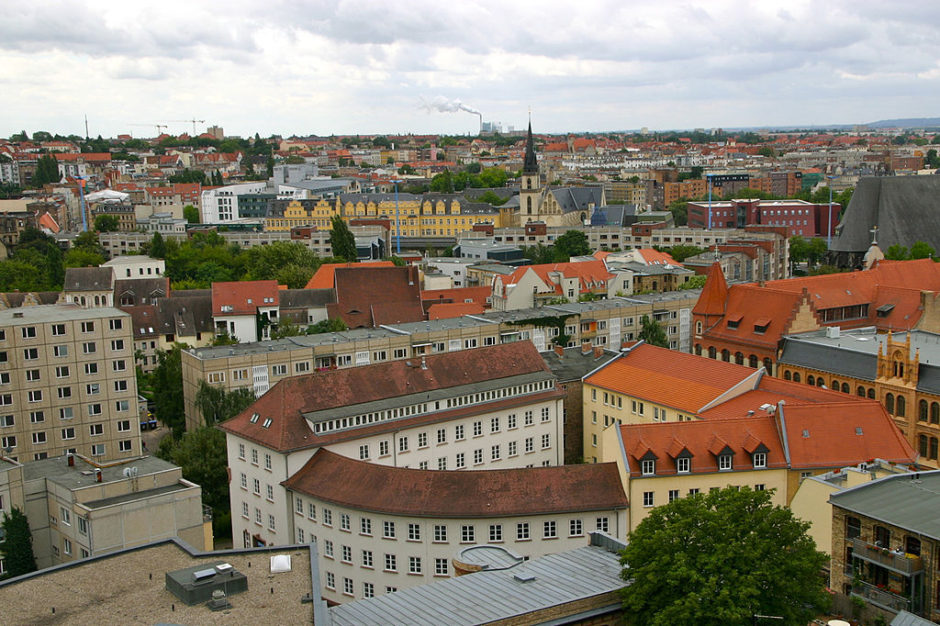The reconstituted Jewish community in Germany is rightly shocked and appalled by the news that a heavily-armed neo-Nazi terrorist almost succeeded in murdering scores of Jews in the eastern city of Halle on Yom Kippur.
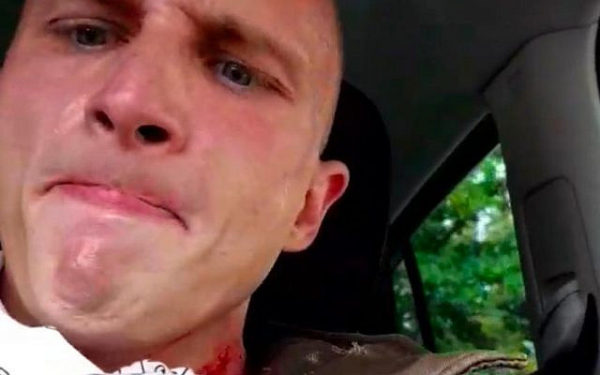
In what could have been the most heinous assault against Jews in Germany since the nation-wide Kristallnacht pogrom of November 1938, which claimed the lives of 90 German Jews, Stephan Balliet attempted to storm the Humboldt Street synagogue, but was thwarted by a locked wooden door.
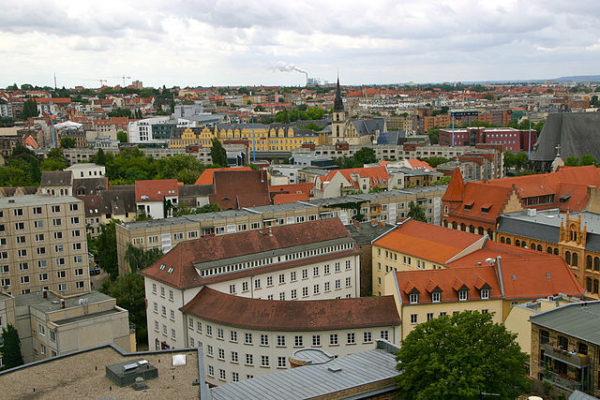
Frustrated by his failure to slaughter Jews with impunity, Balliet, 27, killed two Germans in the vicinity — a 40-year-old woman named Jana Lang and a 20-year-old man identified as Kevin S. He was apprehended by the police 90 minutes after his murderous assault.

Balliet was unknown to the authorities as an extremist. Nor did he have a criminal record. Like Robert Bowers, the middle-aged American white supremacist who wantonly killed 11 worshippers at the Tree of Life Synagogue in Pittsburgh last October, Balliet was a loner, a misfit and a cipher.
And like Brenton Tarrant, the Australian racist who murdered 51 Muslims at a mosque in Christchurch, New Zealand, last year, he live-streamed his attack in a 35-minute video, hoping to reach an international audience.
He also posted an online manifesto in English in which he denied the Holocaust, gloried in the idea of killing Jews, lambasted immigrants and feminists, and claimed that “the root of all these problems is the Jew.”
A classic ideological antisemite boiling over with venomous racial animosity, he proves the adage that the battle against racism is generational and never-ending. It is also worth noting that while nearly 75 years have elapsed since the collapse of Nazi Germany, antisemitism is still a malevolent force to be reckoned with in contemporary Germany, which has taken full responsibility for its ugly past and encouraged the rebuilding of the Jewish community.
As elsewhere in Europe, antisemitism is on the rise in Germany. Last May, the federal government official in charge of monitoring antisemitism, Felix Klein, advised Jews to refrain from wearing yarmulkes in public, a comment that set off an impassioned debate. “I can’t tell Jews to wear the kippa everywhere in Germany,” he said in an ominous remark that spoke volumes.
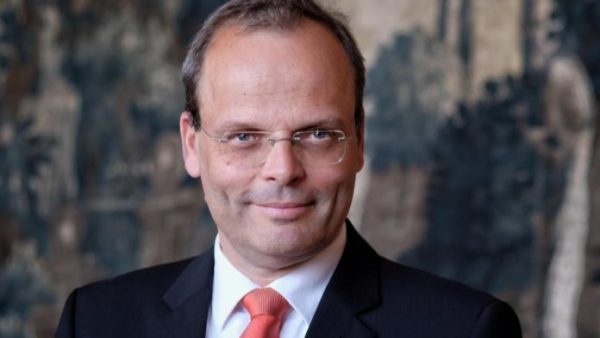
In recent years, some 1,500 antisemitic attacks, both violent and verbal, have been reported annually in Germany. The actual number is considerably higher because about 70 percent of antisemitic incidents supposedly go unreported.
The influx of more than one million Muslims into Germany since 2015 has been a source of concern to Germany’s estimated 200,000 Jews because some of them, especially the Syrian migrants, arrived with anti-Jewish and anti-Israel beliefs and attitudes. And a while a handful of the newcomers have been involved in antisemitic incidents, almost 90 percent of such attacks have been perpetrated by the radical right, according to the government.
Interior Minister Horst Seehofer says there are 24,000 far-right extremists in Germany, half of whom are regarded as potentially violent.
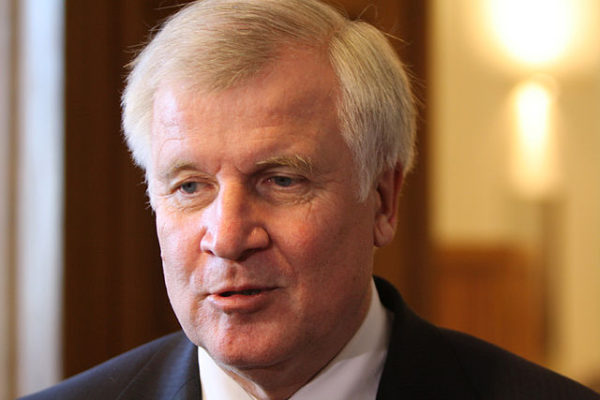
“We unfortunately have to face the truth that the threat of antisemitism, right-wing extremism, and right-wing terrorism is very high,” Seehofer said a day after Balliet’s botched attack. Describing his rampage as “a disgrace for our whole country,” he declared, “With our history, something like this should not happen in Germany.”
Seehofer, having visited the synagogue in Halle on October 10, promised full police protection for synagogues and other Jewish facilities. He made that pledge after the head of the Central Council of Jews in Germany, Josef Schuster, criticized the Halle police for having been slow to show up at the synagogue. “It is scandalous that it was not protected by police on a holy day like Yom Kippur,” he said.
Despite Schuster’s critique, Jews in Germany can take a measure of solace from the fact that the federal government is fully behind them.
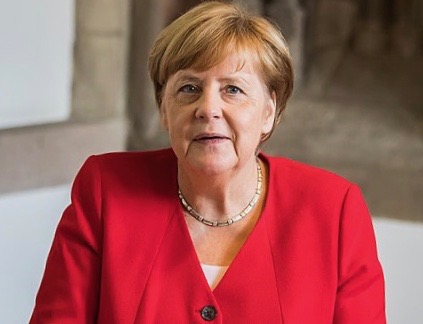
Appearing at a Berlin synagogue in a show of solidarity with the Jewish community, Chancellor Angela Merkel vowed to combat antisemitism by means of prevention efforts and investments in education. She pledged to enforce a “zero tolerance”policy toward “hate, violence and misanthropy.”
The president of Germany, Frank-Walter Steinmeier, called the attack a “day of shame and disgrace,” saying that Germans who exhibit even a “spark of sympathy for right-wing extremism and racial hatred will be complicit.”
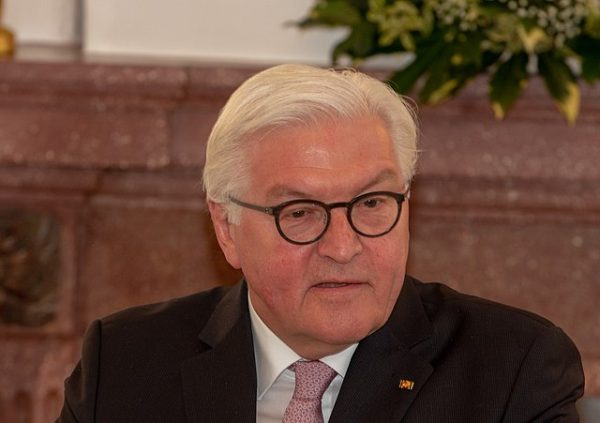
“It is not enough to condemn such a cowardly attack,” he added in a stinging observation.“It must be clear that the state takes responsibility for the safety of Jewish life in Germany,” and that German society must show “a clear, determined position of solidarity” with Jews. “History reminds us, the present demands of us” that Germans must stand by their fellow Jewish citizens, he said. “Those who so far have been silent must speak out.”

Justice Minister Christine Lambrecht, advocating new measures to protect “Jewish fellow citizens significantly better,” said that right-wing extremism “is one of the biggest threats facing us.”
This being the case, the German government will have to crack down harder on neo-Nazis and provide a police presence at every synagogue in the country.
Judging by Balliet’s attack, these malcontents do pose a threat to law, order and decency in Germany. As German Defence Minister Annegret Kramp-Karrenbauer said on October 11, “Our country and its basic order is being attacked from within.”
Precisely.
